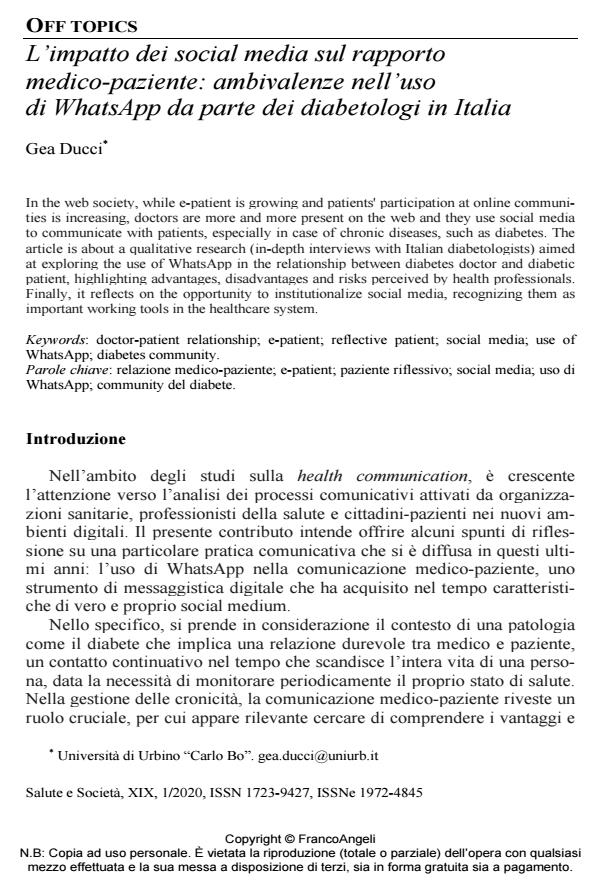L’impatto dei social media sul rapporto medico-paziente: ambivalenze nell’uso di WhatsApp da parte dei diabetologi in Italia
Journal title SALUTE E SOCIETÀ
Author/s Gea Ducci
Publishing Year 2020 Issue 2020/1
Language Italian Pages 16 P. 127-142 File size 192 KB
DOI 10.3280/SES2020-001010
DOI is like a bar code for intellectual property: to have more infomation
click here
Below, you can see the article first page
If you want to buy this article in PDF format, you can do it, following the instructions to buy download credits

FrancoAngeli is member of Publishers International Linking Association, Inc (PILA), a not-for-profit association which run the CrossRef service enabling links to and from online scholarly content.
In the web society, while e-patient is growing and patients' participation at online communities is increasing, doctors are more and more present on the web and they use social media to communicate with patients, especially in case of chronic diseases, such as diabetes. The article is about a qualitative research (in-depth interviews with Italian diabetologists) aimed at exploring the use of WhatsApp in the relationship between diabetes doctor and diabetic patient, highlighting advantages, disadvantages and risks perceived by health professionals. Finally, it reflects on the opportunity to institutionalize social media, recognizing them as important working tools in the healthcare system.
Keywords: Doctor-patient relationship; e-patient; reflective patient; social media; use of WhatsApp; diabetes community.
- Pratiche comunicative di salute LGBT e social media: una ricerca esplorativa su TikTok Alessandro Lovari, Cosimo Marco Scarcelli, in SALUTE E SOCIETÀ 2/2022 pp.67
DOI: 10.3280/SES2022-002006 - Communicating COVID-19 Alessandro Lovari, Gea Ducci, Nicola Righetti, pp.251 (ISBN:978-3-030-79734-8)
Gea Ducci, L’impatto dei social media sul rapporto medico-paziente: ambivalenze nell’uso di WhatsApp da parte dei diabetologi in Italia in "SALUTE E SOCIETÀ" 1/2020, pp 127-142, DOI: 10.3280/SES2020-001010